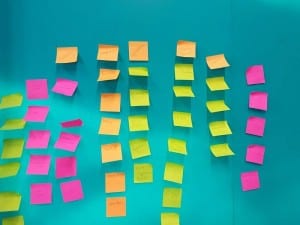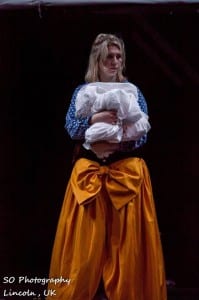As a group we were slightly over stimulated by the amount of different ‘escapes’ that we as a company could explore. We were able to combat this problem by using an exercise which was taught to us in a workshop by Flickbook Theatre that I like to call ‘The Idea Tree’
The Idea Tree (Turner, 2017)
The premise of the idea tree is to take an area of exploration such as ‘Gaming’ or ‘Religion’ and go onto the Wikipedia page for that word. By clicking on the hyperlinks on that page we were able to create a train of thought sprouting off from that word. An example of this is ‘Gaming’ which became gaming therapy, anxiety, fear and Hypertension giving us new avenues to explore if and when we looked at gaming as a means of escape in the show.
Flickbook are also well known for their use of narration, something which I thought could used to our benefit in the show. Through having to explain an event in our lives including all the detail of the room, the furniture, the people etc. I was able to gain a better understanding of how the intricate details of the description is what makes an audience member visualize said space/event. This technique was implemented in the show within the childhood section in which Chloe described the room around her and minimal props and costume were brought on to help the audience visualize the space.
Laura after her childhood escape (Odonnell, 2017)
One thing that I was overly aware of was the need and the necessity to go and watch other theatre companies perform in the LPAC to broaden our horizons as a company and help pinpoint our own interest and inform our work. For example, the shows Focus Group by Toot and Wail by Little Bulb introduced us to the notion of direct address of the audience which in turn led us to the idea of our piece adopting a Postdramatic style (see next blog post).
Once we began working with the meta-theatrical ideas of Postdramaticism, I noticed that we were beginning to lose the individual and personal narratives which we started the process with. This was the case until a workshop and lecture with Third Angel Director Alexander Kelly on the 6th April. In his talk Kelly spoke about how he came about creating some of his shows and how he used real life stories from real life people and how “the truth is better than any fiction you could create” (Kelly, 2017) which prompted us to go back and look at the original escapes and personal experiences which we began the process with.
Works Cited:
Kelly, A. (2017) Discussion of Third Angel and Contemporary Performance [lecture]. University of Lincoln, 6 April.
Odonnell, S. (2017) Laura After Her Childhood Escape. Lincoln: SO Photography.
Turner, J. (2017) The Idea Tree.


Leave a comment